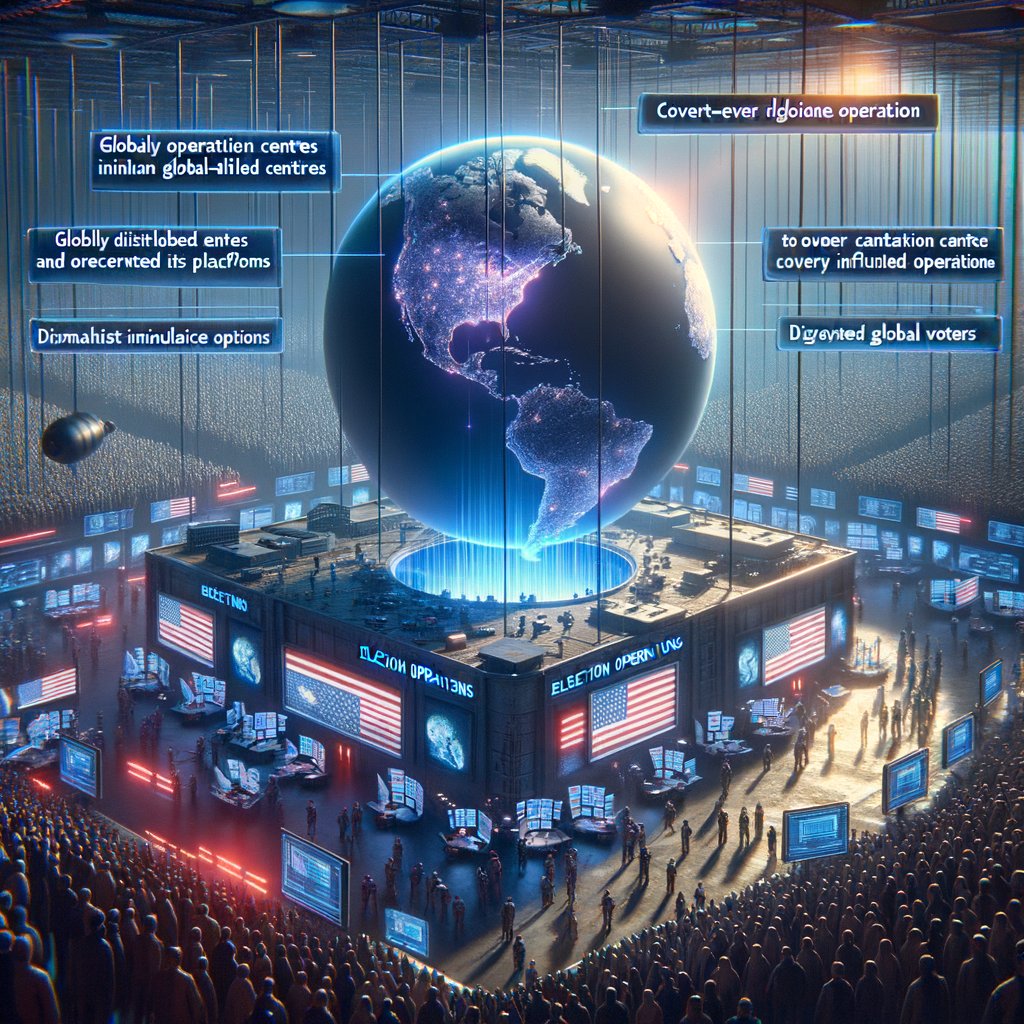Image created by AI
Meta's AI Impact in 2024 Elections: A Subdued Influence, Confirms Nick Clegg
In 2024, the global community approached election season with a wary eye on artificial intelligence (AI), anticipating potential disruptions. Contrary to widespread apprehensions, Meta, a leading technology conglomerate previously known as Facebook, unveiled findings suggesting that AI had an understated impact on elections worldwide. Nick Clegg, Meta's president of global affairs, revealed these insights during a press briefing, emphasizing the effectiveness of the company's preemptive measures against AI-driven misinformation.
Throughout 2024, Meta initiated numerous election operations centres globally to oversee and respond to content-related issues across its platforms, including Facebook, Instagram, and Threads. These centres functioned in strategic locations during pivotal elections in the US, South Africa, the EU, and several other regions, bolstering Meta's defense against covert influence operations predominantly orchestrated by state actors from Russia, Iran, and China.
Meta’s proactive approach led to the dismantling of approximately 20 covert influence operations. A notable reveal by Clegg highlighted that Russia remains the predominant originator, with a history of consistent attempts to deploy AI tactics in misinformation campaigns. Despite these attempts, Clegg assured that generative AI tools had not been notably effective in circumventing Meta's security measures.
Amidst the backdrop of an election year termed as the largest ever, with around 2 billion people voting globally, the role of AI in elections was scrutinized. Meta's swift actions in flagging or eliminating AI-generated misinformation were crucial. Lead-up to the US Election Day saw Meta rejecting over half a million requests to generate images associated with key political figures, showcasing their vigilance.
However, the struggle against misinformation isn't restricted to Meta. The dispersion of misinformation on platforms not controlled by Meta, notably TikTok, poses an additional challenge as alternative venues for misinformation proliferate.
As AI continues to evolve rapidly, warnings have surfaced regarding its potential misuse. Notably, President Joe Biden recently announced new initiatives geared towards leveraging AI for America's national security, emphasizing the need for "safe, secure, and trustworthy" AI advancements.
Yet, despite powerful safeguards, Meta also grapples with criticisms surrounding censorship and inadequate prevention of online abuses. This year, Human Rights Watch criticized Meta for allegedly muting pro-Palestine voices amidst heightened social media censorship. These issues highlight the complex balance Meta seeks to maintain between regulating content and ensuring freedom of expression.
In response to ongoing criticisms, particularly from conservative quarters and the looming presidency of Donald Trump—who has previously accused social media platforms of biased censorship—Meta is poised to engage actively in discussions shaping future tech policy. Clegg noted the importance of AI in these dialogues, stressing the necessity for strategic leadership in AI to maintain technological supremacy.
Meta’s narrative in 2024 showcases a scenario where AI, with all its potential for disruption, was largely contained within the electoral context, thanks to rigorous monitoring and intervention by the tech giant. Yet, the broader discussion concerning AI’s role in public life and its regulatory, ethical boundaries remains dynamically evolving.










